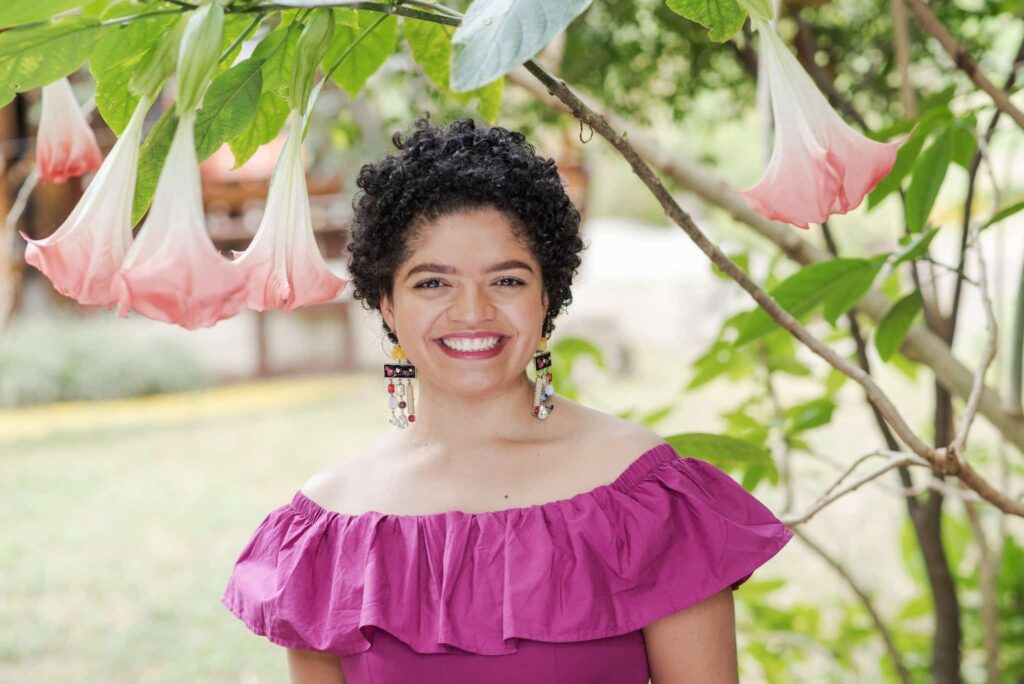
This former psychology student found her path in the art of writing songs that heal and empower the soul.
By Katherine Estrada Tellez (Confidencial)
HAVANA TIMES – The little girl who spent hours imitating Shakira, Thalia and other Latin pop divas of the 2000’s is today a singer-songwriter with her own voice, who’s been conquering audiences within and outside her native Nicaragua.Ceshia Ubau Molina had the good fortune to have parents who took her innocent games seriously and invested their energy in developing her artistic talents. That’s how this 26-year-old singer-songwriter began. Today, she describes her music as a “powerful tool for healing and empowerment.”
In this interview with Confidencial’s section “Nicas Migrantes,” which features the accomplishments and difficulties of Nicaraguans living outside the country, Ceshia Ubau shares details of her musical trajectory and her experience as an immigrant in Costa Rica, where her career took off. From her beginnings in Nicaragua through her growth as a performing artist, she speaks of the challenges and opportunities she’s found in Costa Rica, the country where she now lives.
“I loved playing at being a singer and giving private concerts for my stuffed animals,” Ceshia recalls. “Once, I decided to take my performance to the next level: I organized my room as if it were a real stage, arranged little tables and children’s chairs to simulate seats for the audience, even improvised a small stage to perform on.” Noting her musical inclinations, her parents enrolled the little girl in piano lessons, which marked the beginning of her musical training.
As she progressed in her piano studies, her passion for music grew. She expanded into different musical genres, immersing herself in classical and contemporary music, exploring the nuances of jazz, and intertwining the folkloric roots of Nicaragua and Central America with contemporary sounds. “It was during my years studying jazz that I began experimenting with composition,” she comments.

At the age of 17, she began to write her first songs in diaries and notebooks. They were inspired by the works of Cuban singer-songwriter Silvio Rodríguez and by Nicaraguans such as Salvador and Katia Cardenal, and Elsa Basil. She was also influenced by Colombian Martha Gómez, Mexican singer Natalia Lafourcade, and others.
“Psychology forms the theoretical foundations of my songs”
Ceshia Ubau is a psychologist with a Master’s in the treatment of sexual abuse victims. In addition to being a singer-songwriter, she offers psycho-social interventions and facilitates processes of development and wellness in communities in the northern zone of Costa Rica.
She believes the combination of psychology and music represents a powerful tool for healing and empowerment. “I discovered in psychology a theoretical foundation for what I wanted to accomplish with my songs – connecting with the most profound emotions of being,” she reflects. “I discovered my aim as a songwriter, which helped me to define my life’s project.”

Ceshia notes that music has multiple therapeutic tools. As a songwriter, she uses the power of the word fused with sound.
“Healing is the word that sums up my entire concept and what I seek with the music,” she states. “It’s much easier for us to be able to identify our emotions through music and be able to name them. When we can give names to these feelings, we can begin to heal our personal story and transform things.”
Her mission goes beyond mere entertainment – she seeks to inspire and empower her audience, reminding them that we all have an intrinsic force inside us which we can access through music. Her songs present her perspective on social and personal realities. They speak of love, self-esteem, the joy of living, and migration.
Ceshia Ubau and the challenges of being an immigrant
On May 28, 2018, Ceshia arrived in Costa Rica with the intention of remaining there for a


